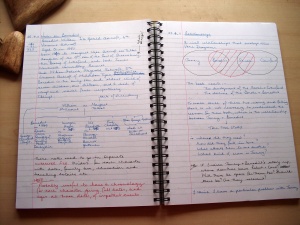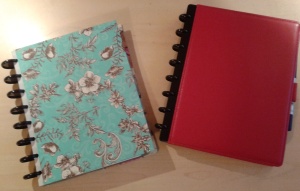
Andrew Gormley sculpture on top of Blackwells Art shop in Broad Street, Oxford.
Today is the first day of meteorological autumn, and it feels like it out here in Darkest Norfolk, where the nights have suddenly become chilly, and the elderberries are hanging in heavy, bloody bunches in the hedgerows. It marks the end of a summer we have barely experienced, and not just because of the weather, which has, frankly, been ruddy awful here.
At this time of year I am inclined to be reflective, and this year all the more so, since at the end of the month I will turn 50, an age at one time I seriously never thought I would reach. The same day will be the first anniversary of my mother-in-law’s death, after a long struggle with dementia. There’s a lot to think about, as you can imagine.
This summer, I haven’t been very present on this blog for many reasons. We’ve been in the process of clearing out mother-in-law’s house, ready for its new owners to move in, which has been a long and arduous project, requiring a great deal of travelling, complicated emotions and memories, and an uncountable number of visits to the city dump and various charity shops. I won’t bore you with the details except to say that two old ladies living in a large three bedroomed house for 28 years can accumulate A LOT of STUFF.
In the midst of juggling estate agents and solicitors, my husband was called in for a routine hernia repair operation, which went well, but immobilised him for a period.
Then, inconveniently in the middle of his recovery, I went down with what was subsequently diagnosed as Menieres disease, a condition of the middle ear which causes tinnitus, pain, hearing loss, debilitating balance problems and bouts of vertigo.
Anybody who thinks vertigo is just being scared of heights needs to be corrected. It is when the balance mechanism in your inner ear goes haywire and your brain can’t orientate you in three-dimensional space. The result is like having your head in a washing machine. Vomit-inducing. Try having a bout of that regularly for six weeks, and I think you’ll know why I haven’t been writing much. Thanks, however, to the wonders of modern medication, I am now able to function like a normal human being again, an unbelievable relief. I have even got my hearing and ability not to walk into large pieces of furniture back! The fear that I might never hear again, that I might lose my balance permanently, has also faded. Which is nice. And my husband is fully recovered, so that’s nice too.
My doctor told me she didn’t like the term ‘disease’ when she diagnosed me with Menieres. She said it didn’t accurately describe the condition. For me it described it perfectly. The dis-ease within my skin. The sense of being unbalanced, literally and metaphorically, as I negotiate this transitional phase of my life. The stripping back of the extraneous. There was no energy for anything unnecessary. No energy spare for anything other than the basic functions of life. Standing up. Lying down. Walking. Eating. Sleeping. Seeing. And most demandingly of all, hearing.
It is amazing how, when life is cut back to the bone like that, when things you take for granted suddenly become unstable, lots of things simply are no longer worth the effort, and some are even intolerable.
I am no longer inclined to take any shit. I am no longer inclined to care what other people think. I am no longer willing to tolerate a victim mentality, either in myself or others. I am no longer willing to do anything but be grateful for every minute of every day.
Yes, Menieres changed me.
The last year has been spent in the aftermath of Alzheimers, midwifing my husband through his grief, and coping with my own mother’s diagnosis with the same disease, an event which rocked my world off its hinges completely. The trauma of caring for someone with that horrible affliction cannot be underestimated. I am still dogged by the memory of my normally affectionate and amiable mother-in-law screaming down the phone at me that I was a thief and a liar, and in league with a secret government organisation that was trying to kill her. Such memories are not easily processed. By the end of this month, the house in which she spent her final years will be moving into new hands, and we will no longer have to face the feelings of dread driving into the village, which came from our weekend visits to care for her, not knowing what fresh dramas awaited us. Not having to drive up that road any more will help, I think.
Alzheimers changed me.
This time last year, another life changed radically too. My niece Phoebe was diagnosed with cancer, a rare and most serious kind that caused catastrophic blood clotting so desperate that her leg had to be amputated. Her courage in learning to walk again, facing many surgical procedures, and now conventional chemotherapy after the months of oral chemo she has already been through, continues to astound me. I’m sure she wouldn’t say she was being especially brave. She is 32 with a lovely husband and two little children to live for. She just wants her life back. To me she is an inspiration.
Cancer has changed me too.
Through all this I have written, even if somewhat intermittently. I have written in my journal, doggedly trying to stay sane through its ink-stained pages. I have scribbled many writing practice sessions. I have reflected and plotted in my writing notebook. I have rediscovered myself after the blinding snowstorm of caring for my mother-in-law, and managed to cling onto myself in the subsequent whirlwinds of Menieres and family problems. Through writing, I have remembered who I am, and then discovered I am more than I thought I ever could be.
And that is where I am now.
Changed.
I am not sure this chrysalis phase is over yet. There is plenty more change to be negotiated, not least my own mother’s decline.
But just now, things are stable. Optimistic. Grounded. And, thank goodness, not spinning!
So I begin September, my birthday month, hopeful, and in the process of transition. A transition that I hope to share with you, dear reader.
Thank you for sticking with me.
Happy Creating,
EF









